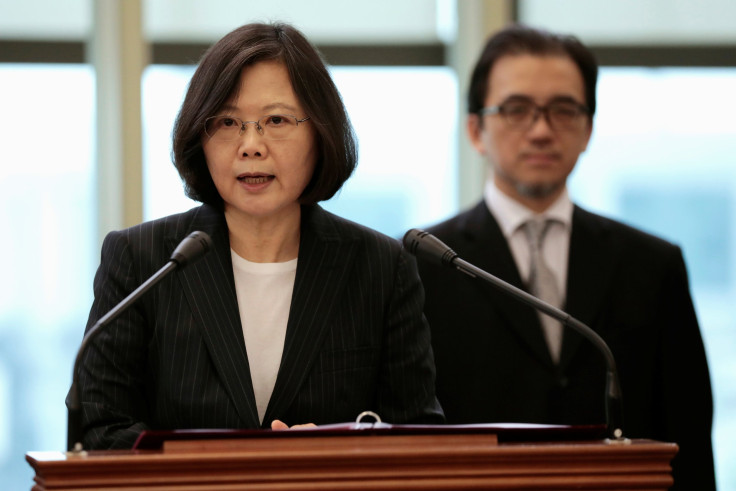‘One China’ Policy In Trouble? Trump Unclear About Meeting Taiwan’s Tsai Ing-Wen During US Stopovers

Taiwanese President Tsai Ing-wen embarked Saturday on a nine-day trip to visit the island nation’s Central American allies. Her itinerary includes U.S. transits which will be closely monitored by China, following President-elect Donald Trump’s controversial call with the Taiwanese leader last month.
Taiwan’s first female president will transit through Houston this weekend and return to Taipei via San Francisco the next. Beijing urged Washington to forbid Tsai from stopping in the U.S. and “refrain from sending any wrong signal to the Taiwanese independence forces.”
A call last month between Tsai and Trump angered China which questioned the U.S.’s commitment to the “one China” policy, according to which Washington recognizes Beijing as the sole government of China. The December call was the first such contact between the U.S. and Taiwan after former President Jimmy Carter adopted the “one China” policy in 1979.
Washington retains unofficial ties with Taiwan but does not have an embassy in the island country. Few countries recognize Taiwan as a sovereign state, and as China's clout in the world has grown, their number has fallen from 30 to 21 countries over the last few years, with the Vatican being its most high-profile supporter.
Tsai’s nine-day trip, which includes visits to Honduras, Nicaragua, Guatemala and El Salvador, would “show the international society that Taiwan is a capable and responsible partner for cooperation,” the island nation’s president reportedly said Saturday before leaving for Houston.
Tsai’s team declined to reveal further details of her trip and did not confirm if she would meet Trump or anyone from his transition team. The president-elect had been vague about a possible meeting between the two. The 70-year-old said earlier that it would be “a little bit inappropriate” for him to meet the Taiwanese leader.
“It would be a little bit inappropriate, from a protocol standpoint, but we’ll see,” Trump reportedly said at a New Year’s Eve bash at his Mar-a-lago estate in Florida.
The American Institute in Taiwan (AIT), which looks after U.S. interests in the country, said in December that the Taiwanese leader’s transits would be “private and unofficial.”
“President Tsai’s transit through the United States is based on long-standing U.S. practice and is consistent with the unofficial nature of our relations with Taiwan,” Alys Spensley, acting AIT spokeswoman, reportedly said. “There is no change to the U.S. ‘one China’ policy.”
© Copyright IBTimes 2025. All rights reserved.






















